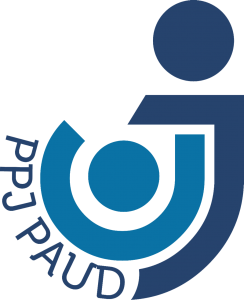Social support as predictors of reducing work stress on early childhood education teacher
DOI:
https://doi.org/10.26555/jecce.v4i2.4007Keywords:
early childhood education, job stress, social support, teachersAbstract
A profession as a teacher and teaching activity are activities that often make people stressed. People who deal with stress effectively can reduce work stress if they get resources from the surrounding environment through social support. This study aims to test social support as a predictor to reduce work stress for Early Childhood Education (abbreviated ECE) teachers. This study uses a quantitative approach with a correlational causality design. The survey method used to collect data is by distributing instruments that had gone through the adaptation process. Convenience sampling was used to get 58 respondents. The research hypothesis is tested using simple linear regression analysis with SPSS Program for Windows Version 20. The result of statistical analyses presents that social support has a significant negative effect on stress at work. This research contributes to ECE teachers' social support and stress, where this topic is still limited to research.
References
Angwen, D. G. (2017). Hubungan antara Lingkungan Fisik dan Beban Kerja dengan Stres Kerja pada PT Panggung Electric Citrabuana. Calyptra: Jurnal Ilmiah Mahasiswa Universitas Surabaya, 6(2), 577–586. http://webhosting.ubaya.ac.id/~journalubayaac/index.php/jimus/article/view/941
Ariyanti, T. (2016). Pentingnya Pendidikan Anak Usia Dini Bagi Tumbuh Kembang Anak. Jurnal Dinamika Pendidikan Dasar, 8(1), 50–58.
Beaton, D. E., Bombardier, C., Guillemin, F., & Ferraz, M. B. (2000). Guidelines for the Process of Cross-Cultural Adaptation of Self-Report Measure. Spine, 25(24), 3186–3191. https://doi.org/10.1080/000163599428823
Boyle, G. J., Borg, M. G., Falzon, J. M., & Baglioni, A. J. (1995). A Structural Model of the Dimensions of Teacher Stress. British Journal of Educational Psychology, 65(1), 49–67. https://doi.org/10.1111/j.2044-8279.1995.tb01130.x
Coolican, H. (2014). Research Methods and Statistics in Psychology. Psychology Press.
Erozkan, A., Dogan, U., & Adiguzel, A. (2016). Self-efficacy, Self-esteem, and Subjective Happiness of Teacher Candidates at the Pedagogical Formation Certificate Program. Journal of Education and Training Studies, 4(8), 72–82. https://doi.org/10.11114/jets.v4i8.1535
Hasanah, N., & Laily, N. (2020). Self-Efficacy dan Kepuasan Kerja pada Guru Taman Kanak-Kanak (TK). Efektor, 7(1), 80–89. https://doi.org/10.29407/e.v7i1.14398
Kang, S. W., & Kang, S. D. (2016). High-Commitment Human Resource Management and Job Stress: Supervisor Support as a Moderator. Social Behavior and Personality, 44(10), 1719–1731. https://doi.org/10.2224/sbp.2016.44.10.1719
Klassen, R. (2010). Teacher Stress: The Mediating Role of Collective Efficacy Beliefs. The Journal of Educational Research, 103, 342–350. https://doi.org/10.1080/00220670903383069
Klassen, R., Wilson, E., Siu, A. F. Y., Hannok, W., Wong, M. W., Wongsri, N., Sonthisap, P., Pibulchol, C., Buranachaitavee, Y., & Jansem, A. (2012). Preservice Teachers’ Work Stress, Self-efficacy, and Occupational Commitmen in Four Countries. European Journal of Psychology of Education, 28, 1289–1309. https://doi.org/10.1007/s10212-012-0166-x
Lambert, E. G., Minor, K. I., Wells, J. B., & Hogan, N. L. (2015). Social Support’s Relationship to Correctional Staff Job Stress, Job Involvement, Job Satisfaction, and Organizational Commitmen. The Social Science Journal, 53(1). https://doi.org/http://dx.doi.org/10.1016/j.soscij.2015.10.001
Manduku, J., Koech, Z., & Chepkirui, P. (2016). Stress Management Strategies and their Effect on Teachers’ Commitment in Primary Schools in Sabatia District, Vihiga Country, Kenya. Educational Research Journal, 6(1), 1–12.
Rowley, J. (2014). Designing and Using Research Questionnaires. Management Research Review, 37(3), 308–330. https://www.emeraldinsight.com/doi/pdfplus/10.1108/QMR-06-2016-0053
Setyaningrum, P., & Dwityanto, A. (2014). Hubungan Antara Dukungan Sosial dengan Stres Kerja pada Tenaga Kesehatan Non Keperawatan di RS. Ortopedi Prof. Dr. R. Soeharso Surakarta. http://eprints.ums.ac.id/30743/12/NASKAH_PUBLIKASI.pdf
Suparman. (2018). Identifikasi Gejala Stres pada Guru Tingkat Sekolah Dasar di Sekolah Lentera Harapan Tangerang. Jurnal Pendidikan Dompet Dhuafa, 8(1), 7–12.
Wong, K. S., Cheuk, W. H., & Rosen, S. (2000). The Influences of Job Stress and Supervisor Support on Negative Affects and Job Satisfaction in Kindergarten Principals. Journal of Social Behavior and Personality, 15, 85–98.
Yogisutanti, G. (2018). Kelelahan Kerja (Fatigue) Pada Dosen. Lembaga Penelitian dan Pengabdian Masyarakat STIK Immanuel Bandung.
Yogisutanti, G. (2019). Pencegahan Kelelahan Kerja dan Stres Kerja pada Guru Pendidikan Anak Usia Dini ( PAUD ) di Desa Babakan Kecamatan Ciparay Kabupaten Bandung. Jurnal Abdimas BSI, 2(1), 21–31.
Downloads
Published
How to Cite
Issue
Section
License
Copyright (c) 2022 Nadhirotul Laily

This work is licensed under a Creative Commons Attribution-ShareAlike 4.0 International License.
Authors who publish with this journal agree to the following terms:
- Authors retain copyright and grant the journal right of first publication with the work simultaneously licensed under a Creative Commons Attribution-ShareAlike 4.0 International License that allows others to share the work with an acknowledgement of the works authorship and initial publication in this journal.
- Authors are able to enter into separate, additional contractual arrangements for the non-exclusive distribution of the journals published version of the work (e.g., post it to an institutional repository or publish it in a book), with an acknowledgement of its initial publication in this journal.
- Authors are permitted and encouraged to post their work online (e.g., in institutional repositories or on their website) prior to and during the submission process, as it can lead to productive exchanges, as well as earlier and greater citation of published work (See The Effect of Open Access).














